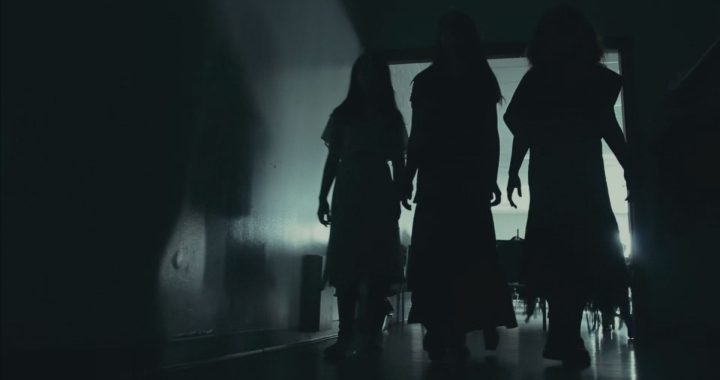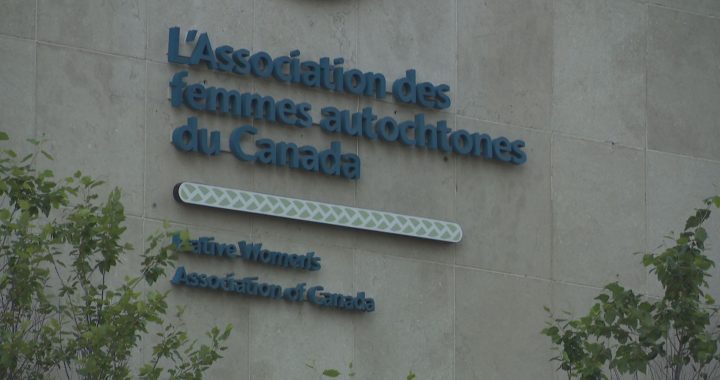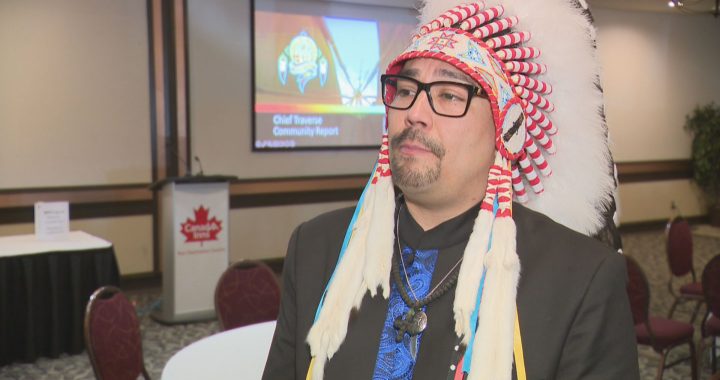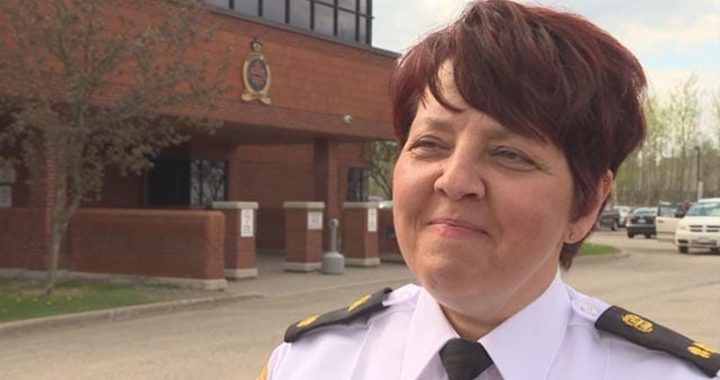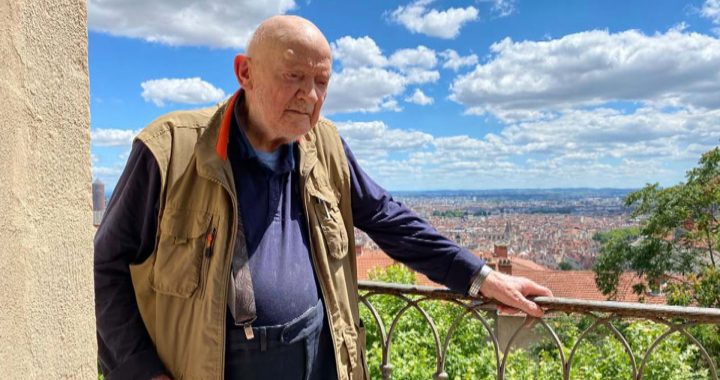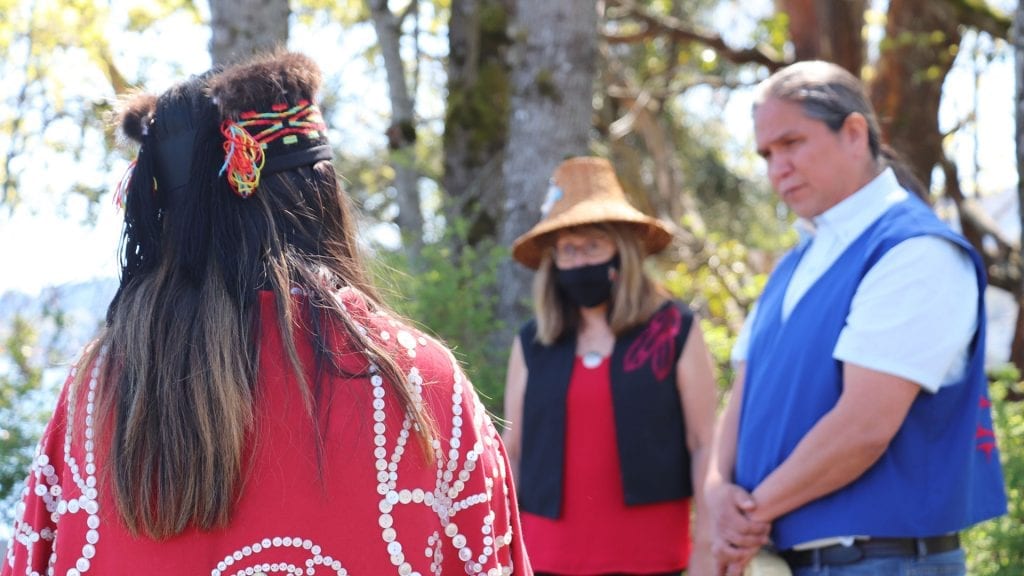
Nuxalk Nation members prepare to speak about their loved ones on the seawall at so-called Transfer Beach in Stz'uminus territory. Photo: Anna McKenzie/IndigiNews
Nuxalk Nation members gathered on the unceded territory of the Stz’uminus First Nation on Sunday to hang red dresses in honour of family members who have been taken.
Along the side of the highway in so-called Ladysmith, they hung the dresses, dark reds against the deep green of the forest, while passersby honked their horns in support — in the same spot where two people were recently caught on camera taking dresses down.
“We are here to be the voices of our loved ones,” says Francine Gascoyne, who is a registered nurse with the First Nations Health Authority.
“We are here to speak out about the injustice. There’s been no justice and that’s not right. Our women and people need to feel safe.”
On Sunday, Gascoyne’s family, along with other members of Nuxalk Nation, visited this spot as part of their ceremony, hanging two red dresses and a red shirt in honour of three Nuxalk relatives: Levina Moody, Marilyn Nelson, and Ron Moody.
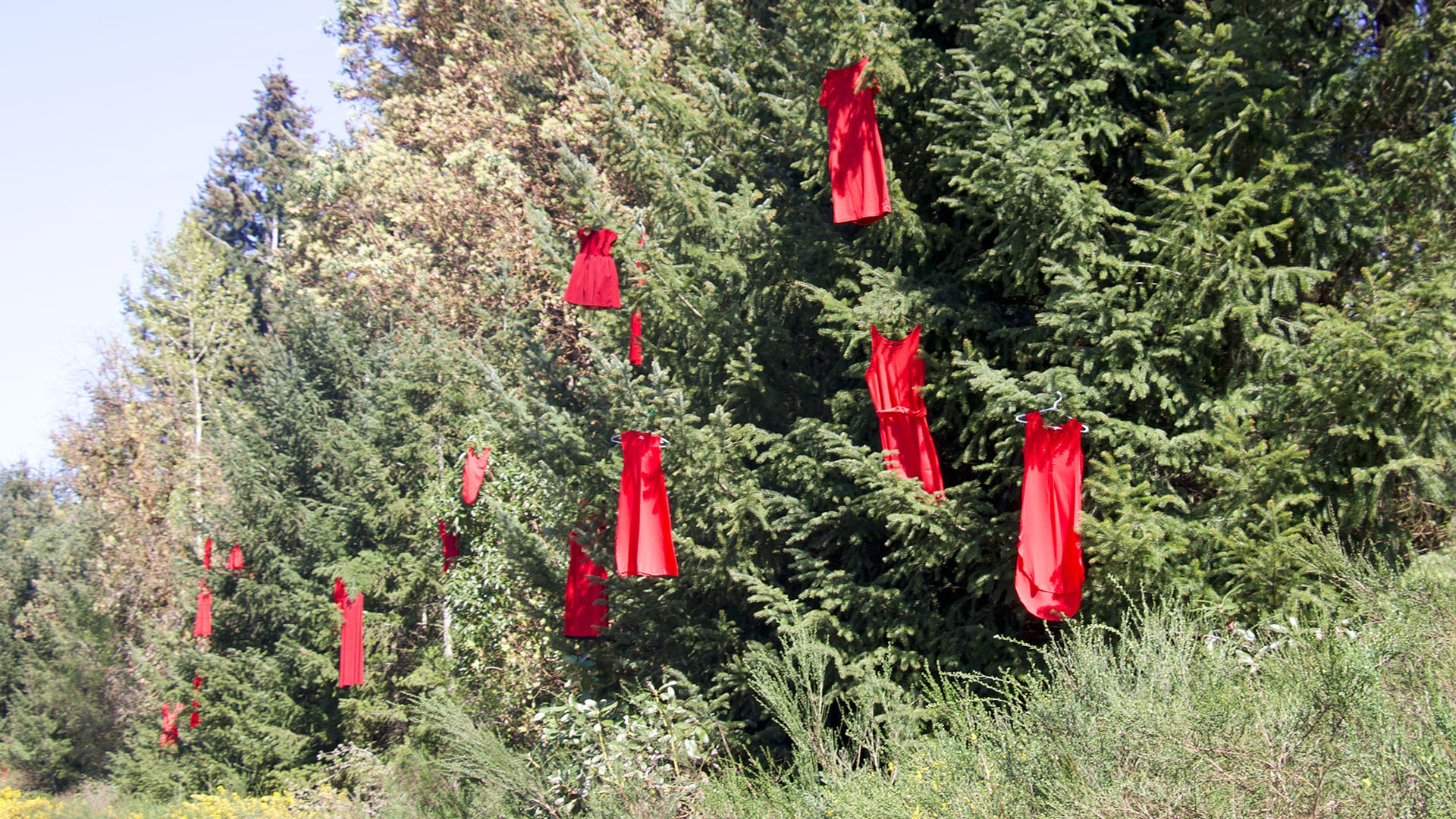
The ceremony was planned long before a recent incident where two people were caught on camera on April 10 removing red dresses along the highway in Ladysmith — as previously reported by IndigiNews. In response to that incident, leadership from Stz’uminus and the Town of Ladysmith came together on Saturday to rehang red dresses.
George Harris and his daughter Daniella David, father and sister to Chief Roxanne Harris, were asked to come witness the ceremony, as members of the Stz’uminus First Nation. They shared words and songs, including the Stz’uminus anthem.
After hanging the dresses, the group travelled like a funeral procession to so-called Transfer Beach to continue the work close to the water.
‘We remember her, we love her, and we will never forget her’
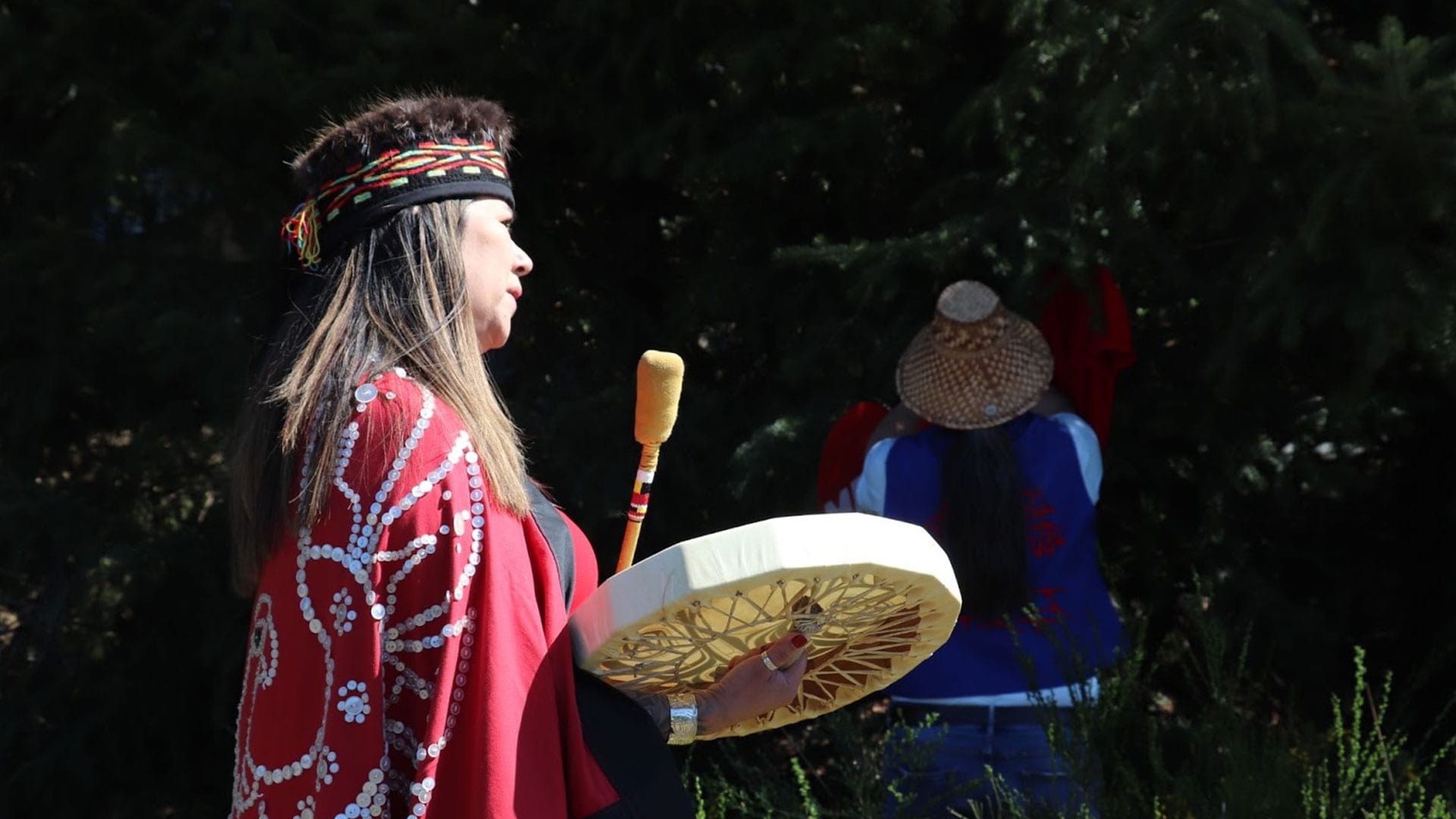
Jalissa Moody is the granddaughter of Levina Moody, a Nuxalk mother who was murdered just outside of Williams Lake in 1969 on what is now known as the Highway of Tears.
“This ceremony is great medicine for our family and our people,” says Jalissa.
“Levina Moody lives on through my mother, Vanessa. Throughout all of the trauma, we carry on with the happiness and the joy.”
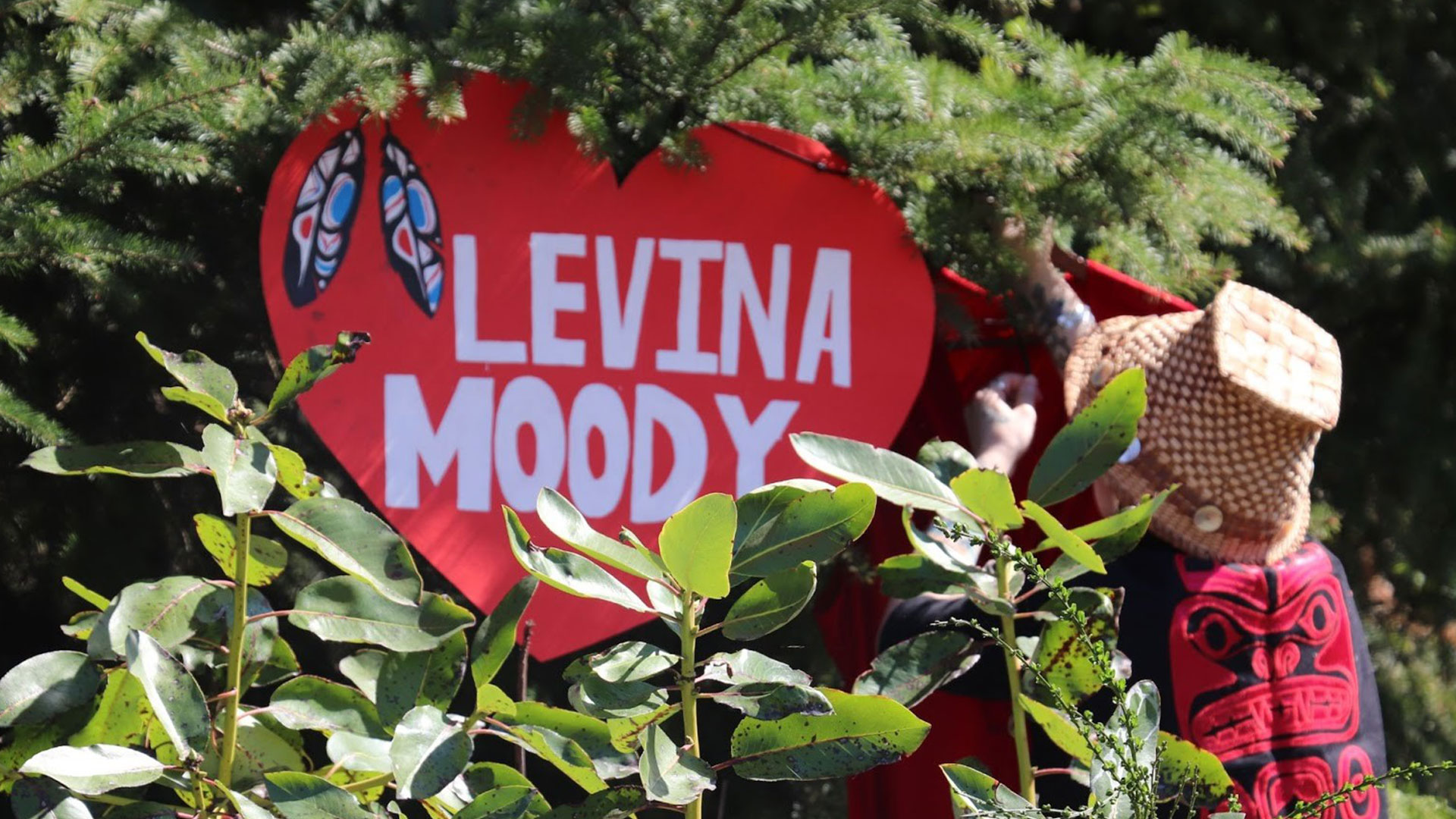
Jalissa says her mother, Vanessa, was just four when her grandmother Levina was taken from them.
“She’s more than what the media made her out to be, more than a statistic,” says Jalissa.
As part of the ceremony, both Gascoyne and her mother, Gina Adolph blanketed Jalissa, offering her comfort.
Taking the time to grieve
Charles Nelson is a Hereditary Chief from the Nuxalk Nation. He is honouring the short life of his niece Marilyn Nelson.
“We haven’t had the chance to mourn,” he says. “It’s bothered me for years that I haven’t had the chance to cry.”
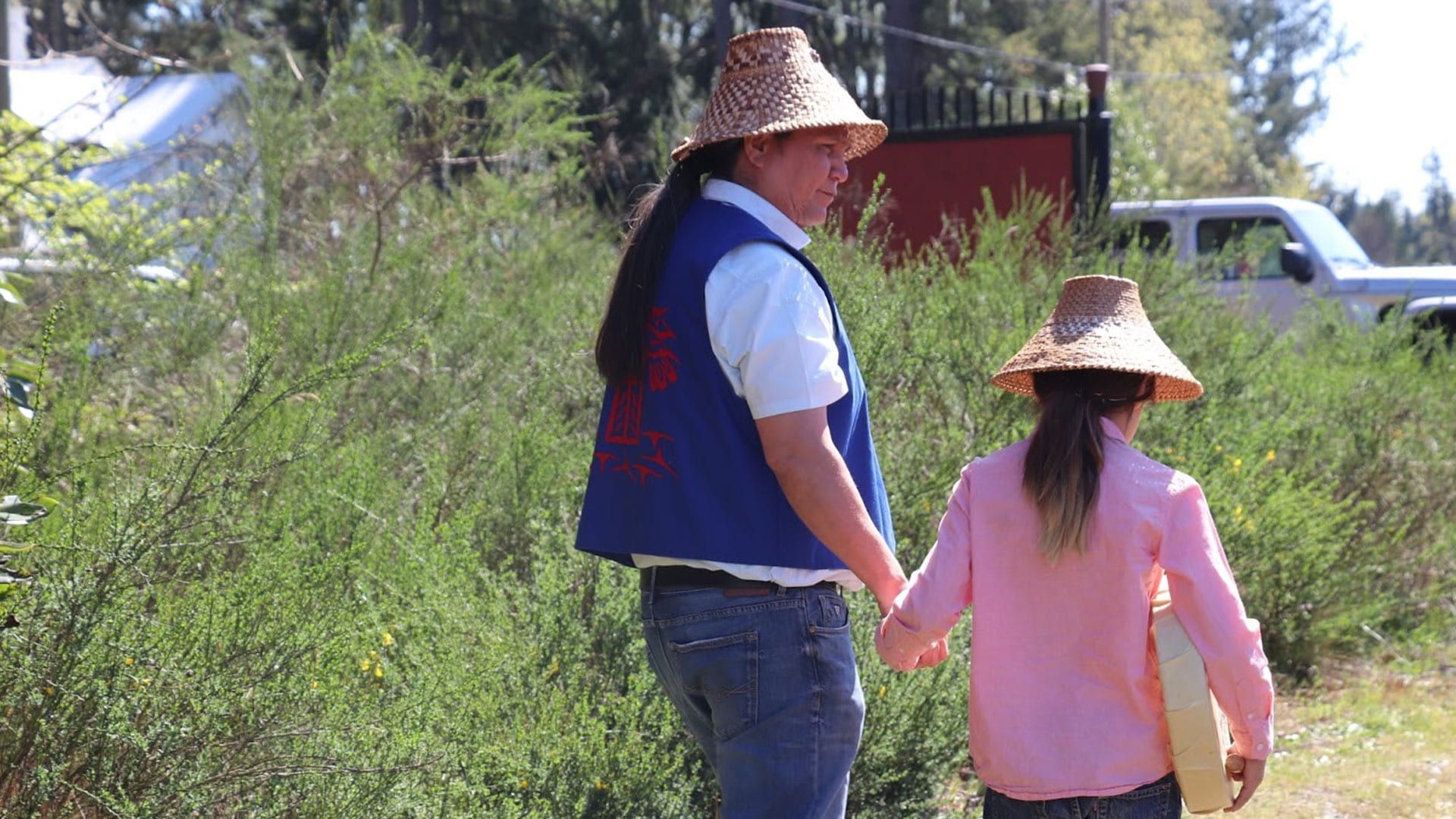
Nelson, who came along with his son Benson, says that his niece was murdered on her 19th birthday.
“She was shy, but she strived to be social. She was excited to go out for her birthday. She talked about it for days,” he says.
The group also hung a red shirt to remember Ron Moody, a relative of both Jalissa and Nelson.
It’s also important to remember missing and murdered men and boys, Nelson says. He’s hopeful that through their actions, people will learn about the “pains and hurts we carry.”
“This is an opportunity to share one last time what happened. It’s an opportunity to let it go.”
Nelson and Benson gifted a cedar hat and a necklace to the representatives from Stz’uminus who shared that this particular area was once used as a place where people came to heal — physically, spiritually and mentally.
“We’ve gone through generational trauma and now we move forward to generational wellness,” Nelson says.
To bring the ceremony to a close, everyone sang the Women’s Warrior Song, which has become an anthem to honour all of the Indigenous women, girls, trans and two-spirit relatives who have been murdered or gone missing, too often with little answers or justice..





